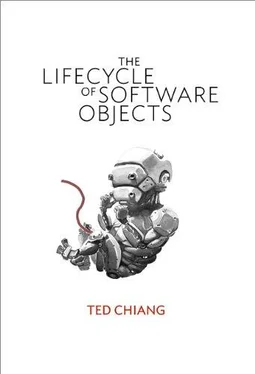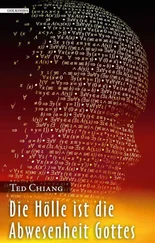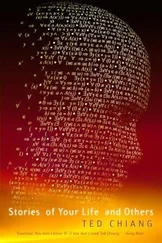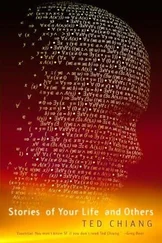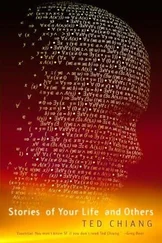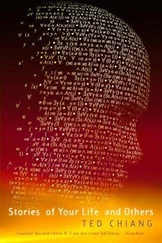“Why would you want to make them do homework?”
“What’s wrong with that?” says Derek. “Is this because you once had a mean teacher when you were a kid?”
“Very funny. Come on, I’m serious.”
“Okay, seriously: what’s so bad about homework?”
She hardly knows where to begin. “It’s one thing for Jax to have ways to keep himself entertained outside of class,” she says. “But to give him assignments and tell him he has to finish them even if he doesn’t enjoy it? To make him feel bad if he doesn’t do it? That goes against every principle of animal training.”
“A long time ago, you were the one who told me that digients weren’t like animals.”
“Yes, I did say that,” she allows. “But they’re not tools either. And I know you know that, but what you’re talking about, it sounds like you’re preparing them to do work that they wouldn’t want to do.”
He shakes his head. “It’s not about making them work, it’s about getting them to learn some responsibility. And they might be strong enough to take feeling bad once in a while; the only way to know is to try.”
“Why take the chance of making them feel bad at all?”
“It was something I thought of when I was talking with my sister,” he says. Derek’s sister teaches children born with Down syndrome. “She mentioned that some parents don’t want to push their kids too much, because they’re afraid of exposing them to the possibility of failure. The parents mean well, but they’re keeping their kids from reaching their full potential when they coddle them.”
It takes her a little time to get used to this idea. Ana’s accustomed to thinking of the digients as supremely gifted apes, and while in the past people have compared apes to children with special needs, it was always more of a metaphor. To view the digients more literally as special-needs children requires a shift in perspective. “How much responsibility do you think the digients can handle?”
Derek spreads his hands. “I don’t know. In a way it’s like Down Syndrome; it affects every person differently, so whenever my sister works with a new kid, she has to play it by ear. We have even less to go on, because no one’s ever raised digients for this long before. If it turns out that the only thing we’re accomplishing with homework assignments is making them feel bad, then of course we’ll stop. But I don’t want Marco and Polo’s potential to be wasted because I was afraid of pushing them a little.”
She sees that Derek has a very different idea of high expectations than she has. More than that, she realizes that his is actually the better one. “You’re right,” she says, after a pause. “We should see if they can do homework.”
#
It’s a year later, and Derek is finishing up some work before he meets Ana for lunch on a Saturday. For the last couple of hours he’s been testing an avatar modification that would change the proportions of the digients’ bodies and faces to make them look more mature. Among those owners who have opted to further their digients’ education, more and more are commenting on the incongruity between the digients’ eternally cute avatars and their increasing competence. This add-on is intended to correct that, and make it easier for the owners’ to think of the digients as more capable.
Before leaving, he checks his messages, and is puzzled to see a couple from strangers accusing him of running some kind of scam. The messages seem legitimate, so he reads them more closely. The senders are complaining about a digient approaching them in Data Earth and asking for money.
Derek realizes what must have happened. He recently began giving Marco and Polo an allowance, which they usually spend on game subscriptions or virtual toys; they’ve asked for more, but he’s held the line. They must have decided to ask people in Data Earth at random for money and been rebuffed, but since the digients are running under Derek’s Data Earth account, people assumed that he had trained them to beg for money.
He’ll send complete apologies to these people later on, but right now he tells Marco and Polo to enter their robot bodies immediately. Fabrication technology has reached the point where he was able to afford two robot bodies of his own, customized to complement Marco and Polo’s avatars. A minute later, their panda-bear faces appear in the robots’ helmets, and Derek reprimands them for asking strangers for money.”I thought you would know better,” he says.
Polo is apologetic. “Yes, know better,” he says.
“So why did you do it?”
“My idea, not Polo’s,” says Marco. “Knew they wouldn’t give money. Knew they’d message you.”
Derek’s astonished. “You were trying to get people angry at me?”
“This happen because we on your account,” says Marco. “Not happen if we have own accounts, like Voyl.”
Now he understands. The digients have been hearing about a Sophonce digient named Voyl. Voyl’s owner–a lawyer named Gerald Hecht–filed papers to create the Voyl Corporation, and Voyl now runs under a separate Data Earth account registered to that corporation. Voyl pays taxes and is able to own property, enter into contracts, file lawsuits and be sued; in many respects he is a legal person, albeit one for whom Hecht technically serves as director.
The idea has been around for a while. Artificial-life hobbyists all agree on the impossibility of digients ever getting legal protection as a class, citing dogs as an example: human compassion for dogs is both deep and wide, but the euthanasia of dogs in pet shelters amounts to an ongoing canine holocaust, and if the courts haven’t put a stop to that, they certainly aren’t going to grant protection to entities that lack a heartbeat. Given this, some owners believe the most they can hope for is legal protection on an individual basis: by filing articles of incorporation on a specific digient, an owner can take advantage of a substantial body of case law that establishes rights for nonhuman entities. Hecht is the first one to have actually done it.
“So you were trying to make a point,” says Derek.
“People say being corporation great,” says Marco. “Can do whatever want.”
A number of human adolescents have complained that Voyl has more rights than they do; obviously the digients have seen their comments. “Well, you’re not incorporated, and you definitely cannot do anything you want.”
“We sorry,” says Marco, suddenly appreciating the trouble he’s in. “Just want be corporations.”
“I told you before: you’re not old enough.”
“We older Voyl,” says Polo.
“Me especially,” says Marco.
“Voyl’s not old enough for it, either. His owner made a mistake.”
“So you not let us be corporations ever?”
Derek gives them a stern look. “Maybe one day, when you’re much older; we’ll see. But if you two try a stunt like this again, there are going to be serious repercussions. You understand?”
The digients are glum. “Yes,” says Marco.
“Yes,” says Polo.
“Okay. I’ve got to go; we’ll talk about this more later.” Derek scowls at them. “You two get back into Data Earth now.”
As he drives to the restaurant, Derek again thinks about what Marco is asking for. A lot of people are skeptical about the idea of digients becoming corporations; they view Hecht’s actions as nothing more than a stunt, an impression Hecht only reinforces by issuing press releases about his plans for Voyl. Right now Hecht essentially runs the Voyl Corporation, but he’s training Voyl in business law and insists that someday Voyl will make all the decisions himself; the role of director, whether filled by Hecht or by someone else, will be nothing but a formality. In the meantime, Hecht invites people to put Voyl’s status as a legal person to the test. Hecht has the resources for a court battle, and he’s itching for a fight. So far no one has taken him up on it, but Derek hopes that someone will; he wants the precedents to be well established before he’ll consider incorporating Marco and Polo.
Читать дальше
